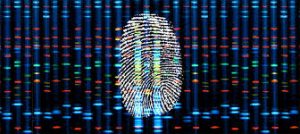DNA fingerprinting:

DNA polymorphisms, through STR analysis and PCR, enable forensic breakthroughs in justice (exonerations, crime-solving) and historical revelations via ancient DNA extraction.
- DNA fingerprints are widely used in forensic science, ancestry tracing, and biological research.
- A DNA fingerprint is a unique genetic profile based on STR variations. It is created using Capillary Electrophoresis: DNA fragments move through a capillary under an electric field. Smaller fragments travel faster, separating different STR patterns. The final DNA profile is unique to each person (except identical twins).
DNA polymorphisms:
- They are variations in DNA sequences among individuals, form the basis of DNA fingerprinting and are crucial for identifying individuals, solving crimes, and studying genetic relationships.
- DNA (Deoxyribonucleic Acid) is the genetic material present in almost all cells of the human body (skin, blood, bone, teeth, etc.).
- Humans have 46 DNA molecules (chromosomes):
- 23 chromosomes inherited from the father (via sperm).
- 23 chromosomes inherited from the mother (via the egg).
- Chromosomes contain genes, which carry instructions for traits like eye color, height, and susceptibility to diseases.
- DNA Polymorphisms are variations in DNA sequences among individuals.
- These genetic differences occur at specific locations in DNA and help differentiate one person from another.
- DNA polymorphisms allow scientists to determine:
- Parentage (paternal/maternal lineage).
- Genetic ancestry.
- Identity verification through DNA fingerprinting.




